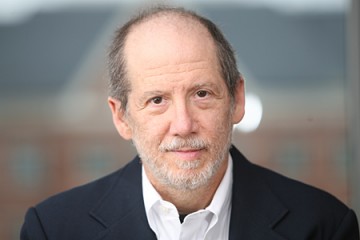Two-thirds of adult cancer incidence across tissues can be explained not by environmental factors or inherited genes but by bad luck, according to scientists from the Johns Hopkins Kimmel Cancer Center.
The unlucky findings by Johns Hopkins scientists were discovered using a statistical model that measures the proportion of cancer incidence across many tissue types. They found that more often than not, cancer in adults is caused by random mutations that occur when stem cells divide.
"All cancers are caused by a combination of bad luck, the environment, and heredity, and we've created a model that may help quantify how much of these three factors contribute to cancer development," says Bert Vogelstein, the Clayton Professor of Oncology at the Johns Hopkins University School of Medicine. "Cancer-free longevity in people exposed to cancer-causing agents, such as tobacco, is often attributed to their 'good genes,' but the truth is that most of them simply had good luck."
Vogelstein warns that poor lifestyles can still add to the bad luck factor in the development of cancer; however, the findings could have implications on the funding of cancer research and the public perception of cancer risk factors.
"If two thirds of cancer incidence across tissues is explained by random DNA mutations that occur when stem cells divide, then changing our lifestyle and habits will be a huge help in preventing certain cancers, but this may not be as effective for a variety of others," says Cristian Tomasetti, assistant professor of oncology at the university's School of Medicine and Bloomberg School of Public Health. "We should focus more resources on finding ways to detect such cancers at early, curable stages."
In a report on the statistical findings, published Jan. 2 in Science, Tomasetti and Vogelstein say they came to their conclusions by searching the scientific literature for information on the cumulative total number of divisions of stem cells among 31 tissue types during an average individual's lifetime. Stem cells "self-renew," thus repopulating cells that die off in a specific organ.
It was well-known, Vogelstein notes, that cancer arises when tissue-specific stem cells make random mistakes, or mutations, when one chemical letter in DNA is incorrectly swapped for another during the replication process in cell division. The more these mutations accumulate, the higher the risk that cells will grow unchecked, a hallmark of cancer. The actual contribution of these random mistakes to cancer incidence, in comparison to the contribution of hereditary or environmental factors, was not previously known, says Vogelstein.
"This study shows that you can add to your risk of getting cancers by smoking or other poor lifestyle factors," says Vogelstein. "However, many forms of cancer are due largely to the bad luck of acquiring a mutation in a cancer driver gene regardless of lifestyle and heredity factors. The best way to eradicate these cancers will be through early detection, when they are still curable by surgery."
Posted in Health
Tagged cancer, kimmel cancer center, bert vogelstein, oncology








